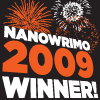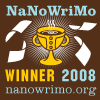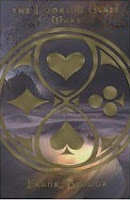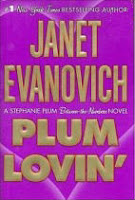New Year’s Reading Resolution #15
 >
In Andalusia, a shepherd dreams of a hidden treasure to be found at the Pyramids. Shortly thereafter he meets an old man claiming to be a king, who encourages the boy to head to Egypt in pursuit of his calling - his Personal Legend. He also tells him of the value of omens, and gives him two stones, one black for yes, one white for no, of which to ask questions. Inspired, the boy sells his sheep and crosses the sea to Tangiers, where a reversal of fortune sees him working in a crystal shop instead of crossing the desert. Finally he saves enough money to leave, and joins a caravan where he meets an Englishman obsessed with alchemy. He is crossing the desert in search of a 200-year-old alchemist in the hope of gaining the knowledge he has failed to acquire from books. The Englishman’s determined pursuit of his Personal Legend further inspires the boy to follow his, as does the alchemist himself when the boy meets him at a desert oasis. As close as he is to his goal, there are dangers still ahead, as well as the greatest temptation to give up and return to being a shepherd: a girl by the name of Fatima. And even when the boy has reached the Pyramids and seen into the Soul of the World, there is one last twist of fate in store to keep him travelling.
>
In Andalusia, a shepherd dreams of a hidden treasure to be found at the Pyramids. Shortly thereafter he meets an old man claiming to be a king, who encourages the boy to head to Egypt in pursuit of his calling - his Personal Legend. He also tells him of the value of omens, and gives him two stones, one black for yes, one white for no, of which to ask questions. Inspired, the boy sells his sheep and crosses the sea to Tangiers, where a reversal of fortune sees him working in a crystal shop instead of crossing the desert. Finally he saves enough money to leave, and joins a caravan where he meets an Englishman obsessed with alchemy. He is crossing the desert in search of a 200-year-old alchemist in the hope of gaining the knowledge he has failed to acquire from books. The Englishman’s determined pursuit of his Personal Legend further inspires the boy to follow his, as does the alchemist himself when the boy meets him at a desert oasis. As close as he is to his goal, there are dangers still ahead, as well as the greatest temptation to give up and return to being a shepherd: a girl by the name of Fatima. And even when the boy has reached the Pyramids and seen into the Soul of the World, there is one last twist of fate in store to keep him travelling.
This story - or more accurately, fable - has a timeless feel to it that was both fitting and frustrating. The former because it was eminently suitable for a timeless message, the latter because I could not work out what sort of setting I should be visualising - modern? vintage? At first, when it was just a wandering shepherd and no mention of any mod cons, I thought it was the nineteenth century; a kind of Andalusian version of Far from the Madding Crowd. Then the shepherd began reading a book with an unpronounceable title, characters with unpronounceable names, and an opening scene featuring a funeral in the snow. My unshakeable first thought was Dr Zhivago, which put the date some 75-100 years later than I had initially imagined, and this was later confirmed in my mind by someone’s memories of German soldiers in Tangiers.
But quibbles over temporal setting aren’t really relevant with a book that is all about the message: that everyone has a calling, a Personal Legend; and when they discover what this is, and set out to achieve it, the whole universe conspires to help them and provides plenty of helpful omens to show them the way. Millions love it, but I only got as far as page 22 before thinking ‘What a load of crap’. And by page 45, I was starting to see the morass of contradictions at the heart of the tale. The old king, Melchizedek, (a Biblical name, right?) criticises the boy’s book for perpetuating the lie that one can lose control of one’s life to fate; yet the same king advocates ceding control to fate by following omens and the answers provided by the stones. Later, at the oasis, a camel driver relates how he asked a seer to tell him the future that he might change it, to which the seer replied that if it could be changed it wouldn’t be in his future, now would it? In other words, it doesn’t matter whether you find your Legend or not, or whether you go after it, because all your decisions and their outcomes are already written. So why bother trying? - and yet the message of the book is that you should try. As well as making the book a chore to read, it made it impossible to suspend disbelief later when the boy began chatting to his heart, the desert, the wind, the sun ... or when the alchemist started talking of the Personal Legends of inanimate objects and the evolution of gold. All I could think about was high school chemistry and how diametrically opposed this nonsense was to sound science.
It does have a few redeeming features: when it’s not preaching it’s an easy and even mildly interesting read. If inspiration is your thing, you’ll love it. But if like me you’re a cynic who’s realised that the universe is as likely to kick you in the guts as not, give this piece of simplistic wishful thinking a miss.
Rating: D+
























